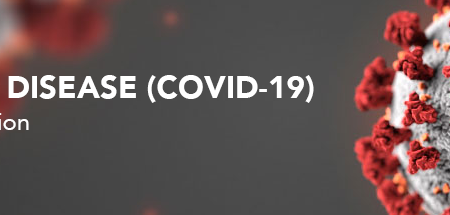Provider Alert! Age and Diagnosis Restriction Updates for Drug Procedure Codes, Effective March 1
Date: April 6, 2022
Attention: Providers
Effective Date: March 1, 2022
Providers should monitor the Texas Children’s Health Plan (TCHP) Provider Portal regularly for alerts and updates associated to the COVID-19 event. TCHP reserves the right to update and/or change this information without prior notice due to the evolving nature of the COVID-19 event.
Call to action: On March 1, 2022, HHSC updated age and diagnosis restrictions for drug procedure codes J0596, J0598, J0599, and J9348 for Medicaid and CHIP. Fee-for-service criteria for J0596, J0598, J0599, and J9348 were effective on March 1, 2022. Beginning April 1, 2022, HHSC will update the Texas Medicaid Provider Procedures Manual (TMPPM), Outpatient Drug Services Handbook to include the updates listed below to drug procedure codes for age and diagnosis restrictions.
How this impacts providers: TCHP has implemented age and diagnoses restrictions for the following procedures codes:
Age Restriction Updates
HHSC will restrict Ruconest (procedure code J0596) to clients who are 13 years and older.
HHSC will restrict Cinryze (procedure code J0598) and Haegarda (procedure code J0599) to clients who are 6 years and older.
Diagnosis Restriction Updates
HHSC will restrict Ruconest, Cinryze, and Haegarda (procedure codes J0596, J0598, and J0599) to diagnosis code D841.
Naxitamab-gqgk, (procedure code J9348) will no longer be diagnosis-restricted.
HHSC will remove the table of diagnosis codes listed for procedure code J9119 in the TMPPM, Outpatient Drug Services Handbook, section 7.15, Cemiplimab-rwlc. This procedure code is not diagnosis restricted.
In addition, HHSC will include the following drugs in the TMPPM, Outpatient Drug Services Handbook:
- Amivantamab-vmjw (procedure code J9061)
- Brolucizumab-dbll (procedure code J0179)
- Cabotegravir and Rilpivirine (procedure code J0741)
- Caffeine citrate (procedure code J0706)
- Cefiderocol (procedure code J0699)
- Coagulation factor XA (recombinant), inactivated-zhzo (procedure code J7169)
- Daratumumab and hyaluronidase-fihj (procedure code J9144)
- Degarelix injection (procedure code J9155)
- Dostarlimab-gxly (procedure code J9272)
- Eptinezumab-jjmr (procedure code J3032)
- Evinacumab-dgnb (procedure code J1305)
- Factor V11a (Antihemophilic factor, recombinant-JNCW) (procedure code J7212)
- Givosiran (procedure code J0223)
- Imipenem, Cilastatin and Relebactam (procedure code J0742)
- Immune Globulin Xembify (procedure code J1558)
- Isatuximab-irfc (procedure code J9227)
- Lefamulin (procedure code J0691)
- Lumasiran (procedure code J0224)
- Loncastuximab tesirine-lpyl (procedure code C9084)
- Lurbinectedin (procedure code J9223)
- Margetuximab-cmkb (procedure code J9353)
- Meloxicam (procedure code J1738)
- Melphalan Evomela (procedure code J9246)
- Mitomycin for pyelocalyceal solution (procedure code J9281)
- Naxitamab-gqgk (procedure code J9348)
- Pegaspargase injection (procedure code J9266)
- Polatuzumab vedotin (procedure code J9309)
- Prothrombin complex, Human (procedure code J7168)
- Rilonacept (procedure code J2793)
- Sacituzumab govitecan-hziy (procedure code J9317)
- Trilaciclib (procedure code J1448)
Next steps for providers: Prescribers should adjust their prescribing patterns accordingly and share this update with their staff as well
If you have any questions, please email Provider Network Management at: providerrelations@texaschildrens.org.
For access to all provider alerts, log into:
www.thecheckup.org or www.texaschildrenshealthplan.org/for-providers.






Leave a Reply
You must be logged in to post a comment.